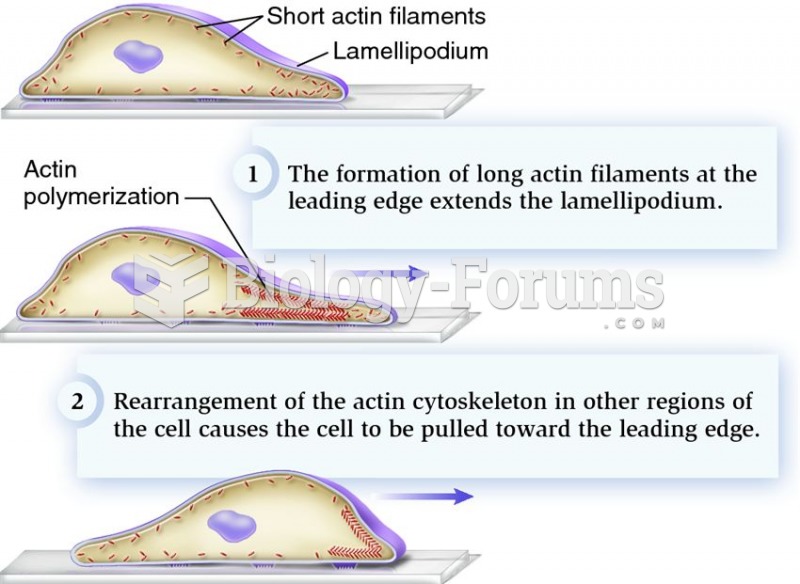|
|
|
On average, the stomach produces 2 L of hydrochloric acid per day.
Most childhood vaccines are 90–99% effective in preventing disease. Side effects are rarely serious.
Cancer has been around as long as humankind, but only in the second half of the twentieth century did the number of cancer cases explode.
Children with strabismus (crossed eyes) can be treated. They are not able to outgrow this condition on their own, but with help, it can be more easily corrected at a younger age. It is important for infants to have eye examinations as early as possible in their development and then another at age 2 years.
Illness; diuretics; laxative abuse; hot weather; exercise; sweating; caffeine; alcoholic beverages; starvation diets; inadequate carbohydrate consumption; and diets high in protein, salt, or fiber can cause people to become dehydrated.







